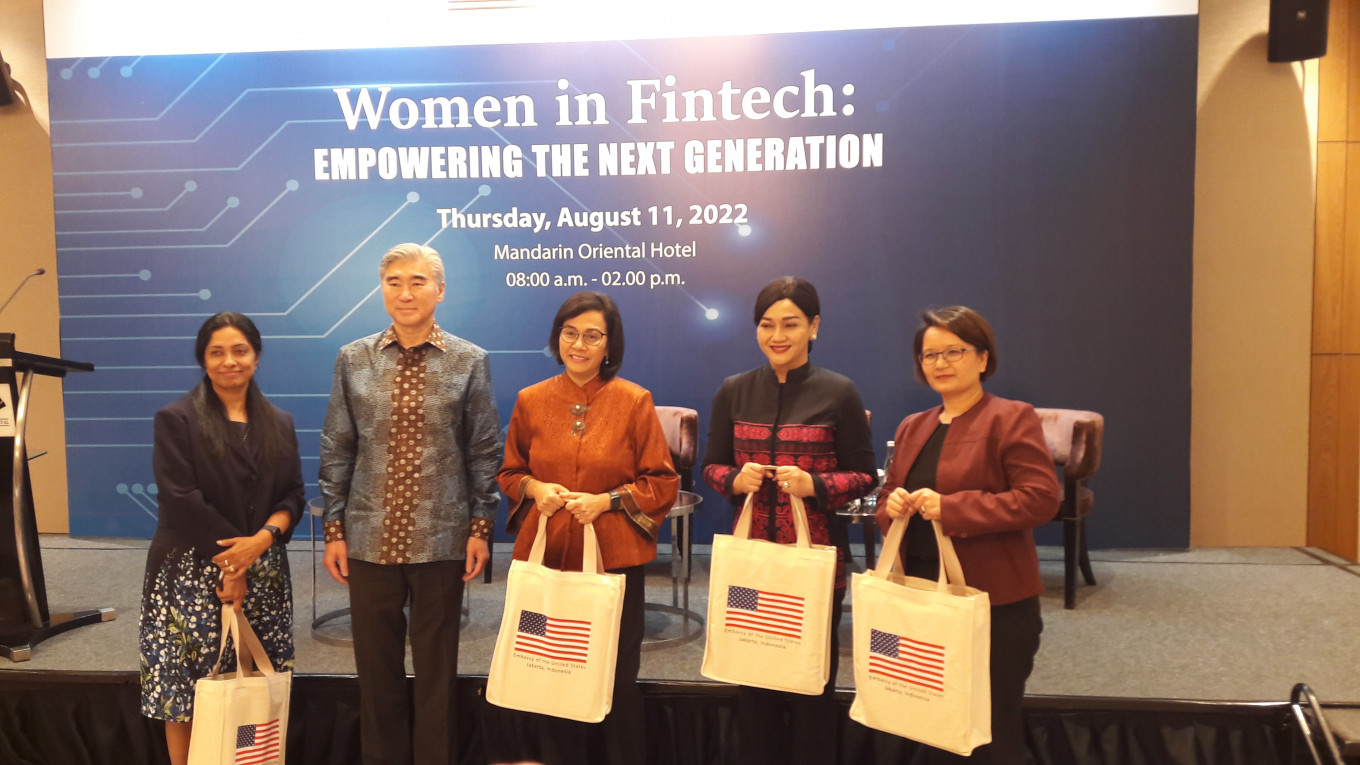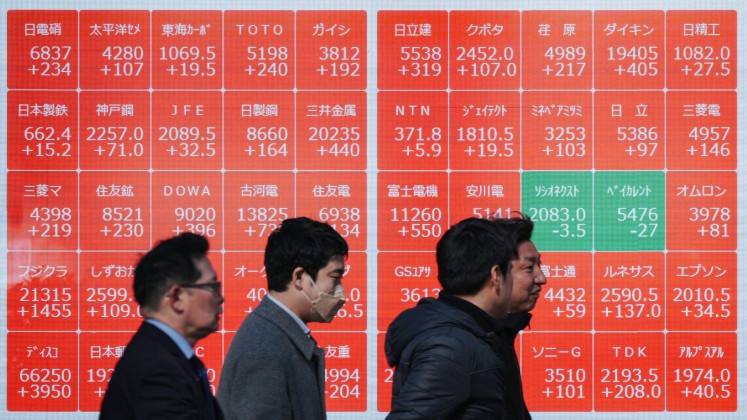Popular Reads
Top Results
Can't find what you're looking for?
View all search resultsPopular Reads
Top Results
Can't find what you're looking for?
View all search resultsWomen's empowerment good for everybody: US Ambassador
The fact that women play such an important role in Indonesia’s economy raised the question as to how gender disparity could exist, especially in financial inclusion and tech workforce.
Change text size
Gift Premium Articles
to Anyone
 Keynote speakers of Women in Fintech, Mastercard vice president Rama Sridhar (left), Finance Minister Sri Mulyani (center), Financial Services Authority (OJK) commissioner Friderica Dewi (second right) and Visa Asia Pacific vice president Patsian Low (right) pose for a photo with US Ambassador to Indonesia Sung Kim following the event. (The Jakarta Post/Deni Ghifari)
Keynote speakers of Women in Fintech, Mastercard vice president Rama Sridhar (left), Finance Minister Sri Mulyani (center), Financial Services Authority (OJK) commissioner Friderica Dewi (second right) and Visa Asia Pacific vice president Patsian Low (right) pose for a photo with US Ambassador to Indonesia Sung Kim following the event. (The Jakarta Post/Deni Ghifari)
W
omen are deemed the backbone of the national economy as they manage 64.5 percent of micro, small and medium enterprises (MSMEs), which have contributed the majority of Indonesia’s GDP over the past 11 years, excluding 2020.
But with women playing such an important role in Indonesia’s economy, it raises the question of how the current gender disparity exists, especially in financial inclusion and Indonesia’s technology workforce.
Addressing the problem, the United States Embassy held the event Women in Fintech: Empowering the Next Generation in Jakarta on Thursday as an initiative to promote gender equality.
“I and my team at the US Embassy are strong believers that empowering women and creating environments of gender equality is good for everybody. […] It improves our lives,” said US Ambassador to Indonesia Sung Kim.
The topic of women’s involvement in technology was also discussed at the event, as the gender gap persists in the sector.
Rama Sridhar, executive vice president of Mastercard, elaborated how women in Southeast Asia had a decent starting point, representing 32 percent of the technology workforce – but that number dropped off with rising seniority.
“Women are severely underrepresented,” said Sridhar, explaining how Southeast Asian women only represented 15 percent of tech CEOs or board members.
Read also: Without data Indonesia’s gender equality promise falters
“According to the Global Gender Gap Report 2022, it will take 132 years to reach full parity,” said Friderica Widyasari Dewi, member of the Financial Services Authority’s (OJK) board of commissioners.
The Gender Gap Report 2022 placed Indonesia 92nd out of the 146 countries surveyed and, positioned in the lower half of the list, this was reflected in other statistics such as the gender pay gap and women in the formal sector workforce, as well as rates of female financial literacy and inclusion.
Read also: Why financial inclusion is still not relevant yet to Indonesia’s current circumstances
Attending the event, Finance Minister Sri Mulyani said MSMEs in Indonesia were creating jobs, but these were of lower quality as their development was hampered by a lack of access to financial products.
“[In terms of financial product penetration] the areas of the population [that are] hard to reach [are] women, youth and people who live in rural areas,” said Sri Mulyani, emphasizing how the government was making use of everything at its disposal to promote financial inclusion for these groups.









